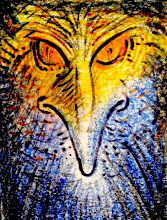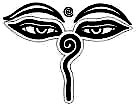3.04.2008
Reversal of the Overheated Medium
WHAT IS THE DIFFERENCE BETWEEN INFORMATION AND REALITY?
Wed 3/5 Kinds of information
Reading: Albert Borgmann, Holding On to Reality, pp. 1-37.
Spring break
Mon 3/17 Cultural meaning and the sociological imagination
Reading: Holding On to Reality cont.
Wed 3/19 Technological information
Reading: Holding On to Reality cont.
Mon 3/24 Narcissus narcosis project due
Reading: Holding On to Reality cont.
––––––––––––––––––––––––––––––––
The following is from John Zerzan's book "Running on Emptiness":
"There has been a wholesale revision in scholarly ideas, in the past 20 or 30 years, of what life outside of civilization really was. One of the basic ideological foundations for civilization, for religion, the state, police, armies, everything else, is that you've got a pretty bloodthirsty, awful, subhuman condition before civilization. It has to be tamed and tutored and so on. It's Hobbes. It's that famous idea that the pre-civilized life was nasty, brutish and short, and so to rescue or enable humanity away from fear and superstitition, from this horrible condition into the light of civilization, you have to do that. You have to have what Freud called the 'forcible renunciation of instinctual freedom.' You just have to. That's the price.
"Anyway, that turns out to be completely wrong. Since the early '70s, we have a starkly different picture of what life was like in the two million or so years before civilization, a period that ended about 10,000 years ago, almost no time at all. Prehistory is now characterized more by intelligence, egalitarianism and sharing, leisure time, a great deal of sexual equality, robusticity and health, with no evidence at all of organized violence. I mean, that's just staggering. It's virtually a wholescale revision. We're still living, of course, with the cartoonish images, the caveman pulling the woman into the cave, Neanderthal meaningt someone who is a complete brute and subhuman, and so on. But the real picture has been wholly revised."
______________________
Could things actually have been easier back in the stone age before agriculture and civilization?!!!
According to the conventional Story of Progress, pre-modern or indigenous peoples not on the path to western-style development are living in an evolutionary backwater, still preoccupied with survival, and not able to evolve to their truly human potentialities. But new anthropological information, and new ecological histories of civilization, suggest that the truth may in fact be the opposite: that so-called ‘civilization’ is a form of spiritual captivity that generates scarcity out of abundance, nihilism out of meaningfulness, alienation out of belonging, and inevitable economic expansionism implying an endless series of resource wars. Is there any evidence to back up this shocking verdict?
The famous economic anthropologist Marshall Sahlins looked into this very question in his book "Stone Age Economics", an anthropological study of the economic systems of hunter-gatherer societies. He uncovered overwhelming evidence to support it. Here are some excerpts from the first chapter in that book, called “The Original Affluent Society”:
“Almost universally committed to the proposition that life was hard in the Paleolithic, our textbooks compete to convey a sense of impending doom, leaving one to wonder not only how hunters managed to live, but whether, after all, this was living? The specter of starvation stalks the stalker through these pages. His technical incompetence is said to enjoin continuous work just to survive, affording him neither respite nor surplus, hence not even the ‘leisure’ to ‘build culture.’…
“In fact, this was, when you come to examine it, the original affluent society. Paradoxical, that phrasing leads to another useful and unexpected conclusion. By the common understanding, an affluent society is one in which all the people’s material wants are easily satisfied. To assert that the hunters are affluent is to deny that the human condition is an ordained tragedy, with man the prisoner at hard labor of a perpetual disparity between his unlimited wants and his insufficient means…
“For there are two possible courses to affluence. Wants may be “easily satisfied” either by producing much or desiring little. The familiar conception… makes assumptions peculiarly appropriate to market economics: that man’s wants are great, not to say, infinite, whereas his means are limited, although improveable: thus, the gap between means and ends can be narrowed by industrial productivity, at least to the point that ‘urgent goods’ become plentiful. But there is also a Zen road to affluence: that human material wants are finite and few, and technical means unchanging but on the whole adequate. Adopting the Zen strategy, a people can enjoy an unparalleled material plenty – with a low standard of living. That, I think, describes the hunters…
“Consumption is a double tragedy: what begins in inadequacy will end in deprivation. Bringing together an international division of labor [i.e. globalization], the market makes available a dazzling array of products: all these Good Things within a man’s reach – but never all within his grasp. Worse, in this game of consumer free choice, every acquisition is simultaneously a deprivation, for every purchase of something is a foregoing of something else, in general only marginally less desirable, and in some particulars more desirable, that could have been had instead…
“When Herskovits was writing his ‘Economic Anthropology’ (1958), it was common anthropological practice to take the [Kalahari] Bushmen or the native Australians as ‘a classic illustration of a people whose economic resources are of the scantiest,’ so precariously situated that ‘only the most intense application makes survivial possible.’ Today the classic understanding can be fairly reversed – on evidence largely from these two groups. A good case can be made that hunters and gatherers work less than we do; and, rather than a continuous travail, the food quest is intermittent, leisure abundant, and there is a greater amount of sleep in the daytime per capita per year than in any other condition of society…
“Reports on hunters and gatherers of the ethnological present – specifically on those in marginal environments – suggest a mean of three to five hours per adult worker per day in food production. Hunters keep banker’s hours, notably less than modern industrial workers who would surely settle for a 21-35 hour week…
“One-third to one-half of humanity are said to go to bed hungry every night. In the Old Stone Age the fraction must have been much smaller. This is the era of hunger unprecedented. Now, in the time of the greatest technical power, is starvation an institution. Reverse another venerable formula: the amount of hunger increases relatively and absolutely with the evolution of culture…
“This paradox is my whole point. Hunters and gatherers have by force of circumstance an objectively low standard of living. But taken as their objective, and given their adequate means of production, all the people’s material wants usually can be easily satisfied…
“The world’s most primitive people have few possessions, but they are not poor. Poverty is not a certain small amount of goods, nor is it just a relation between means and ends; above all it is a relation between people. Poverty is a social status. As such it is the invention of civilization…"
Subscribe to:
Post Comments (Atom)


No comments:
Post a Comment